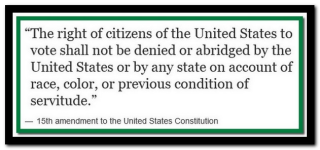Sorry for the long rant above.
There is much to unpack, my friend, but some real kernels of agreement (and disagreement) to be discussed. But, one particular point that I'd like to start with, and is near the end
The short answer here (to me) to your point is that we've made the stakes of losing to high.
By concentrating everything at the federal level, the money and power have become so great that losing is not an option.
Here, I think you are correct in the first instance, but off the mark - not entirely wrong, but a glancing blow - with the second. You attribute the "ill" to concentration, but have mistaken the cart for the horse. I think your earlier premise about corporate/government cohabitation is also correct, but the sequencing may be wrong. But I'll elaborate, because that was about as clear as mud.
Corruption occurs at all levels of government, so the premise that it is from "concentration", I think, is fundamentally incorrect. Corruption occurs as often, and probably
more readily, at the local level
precisely because fewer people pay attention. Because the stakes
seem to be low - school board, mayor, dog catcher - ne'er-do-wells can take over a niche and manipulate "the system" more readily to their advantage. I've watched it in action at the local level. We're seeing some of the fruits of that now on a
national level, percolating up, only because of media attention, but it has been going on since the inception of community.
I once worked as an intern for the Lieutenant Governor's office. I loved my job as an ombudsman because I got to help people with real problems work through the system to get answers. I learned a
lot about the structure of government in the process, what works, and what doesn't. At the same time, my
boss (not the Lt.G) was working the system on behalf of the
political process. He created a database from our work to be used in the re-election process - identifying constituents we helped officially and sending them letters touting the
Lieutenant Governor's (read party's) assistance in resolving their matter. That was just one political appointee, but the point is that it can, and does, occur anywhere. It is not that there is
concentration at the federal level, it's that there are commensurately more "operatives" within the process. (That's why every federal agency has its own Inspector General, a process that frankly doesn't exist in many lower level agencies - see my second paragraph.) The federal government is comparatively
less corrupt than State, and even local, agencies because of the prevalence of the administrative (deep) state, and oversight, frankly.
Now, it is true that federal agencies are target rich environments for manipulators. In that sense your "concentration" argument is valid. But it's not because the stakes are higher, in my view, it's that the opportunities for abuse are
richer. Many of the circumstances that are
portrayed as high stakes are not, but, unfortunately, because crying wolf is so prevalent, the
actually dire conditions are drowned out by the noise. At the risk of taking the thread off-topic I'll give the for-instance of CRT vs climate change as an example. Climate change is real, it is significant, and it is urgent - high stakes, indeed - whereas CRT is a phantom, a byproduct of the much larger problem, and insignificant to the health of the nation, yet which is getting more attention?

